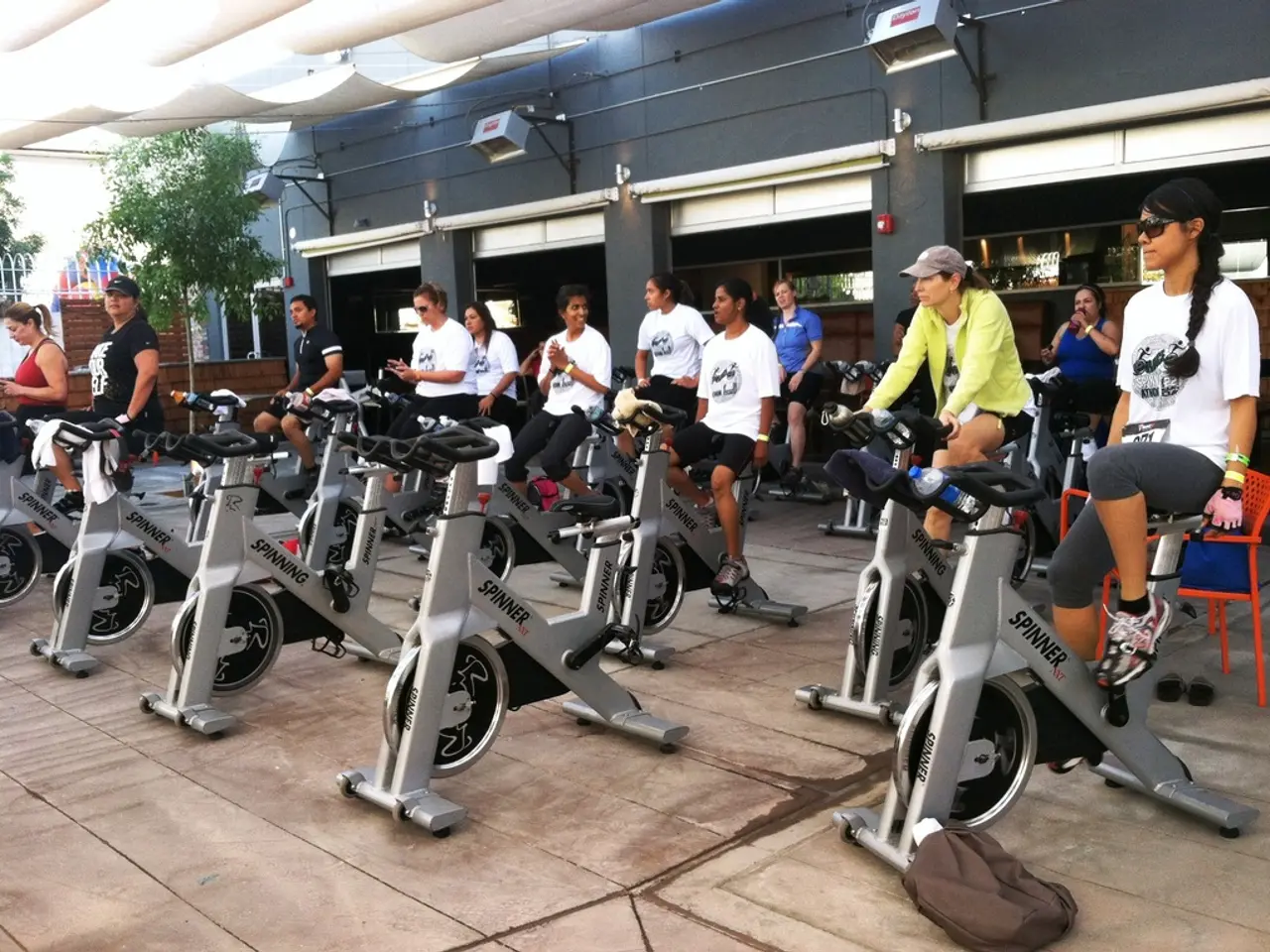Strategies for Reducing Your Biological Ageing Pace
In the ongoing quest to improve our quality of life and potentially extend our years on Earth, a focus on lifestyle changes and emerging longevity science is key.
Regular physical activity plays a crucial role in maintaining good health. Exercise enhances agility, metabolic health, mitochondrial function, and immune balance. Both aerobic exercise and resistance training promote muscle mass and cardiovascular health, reducing the risk of chronic diseases. Emerging research suggests that rhythmic or cyclical activation of cellular pathways like AMPK and autophagy via exercise and fasting supports cellular repair and longevity mechanisms.
A well-balanced diet rich in nutrients is essential for overall vitality. Approaches like time-restricted eating or intermittent fasting can cyclically activate autophagy (cellular cleanup), which may slow aging processes. Nutrient-sensing pathways such as mTOR are influenced by diet; modulating these through calorie control or fasting mimetics can promote metabolic resilience and healthspan.
Sleep quality and stress management are vital for brain health, energy, and mood, contributing to longevity. Social connections and mental health also impact healthspan, while financial wellness ("wealthspan") ensures you can sustain health-supporting behaviors and access needed care during aging.
Research is advancing in drugs and interventions targeting aging biology. Promising pharmacological agents include rapamycin and berberine, which cyclically activate longevity pathways like autophagy. Experimental approaches include genetic and epigenetic reprogramming, stem cell therapies, and mitochondrial modulation. While many of these remain in early or clinical trial phases, cyclic or pulsed dosing regimens are being explored to maximize benefits and minimize side effects.
The average life expectancy at birth worldwide is around 73 years, but life expectancy varies widely between countries and individual states in America. Only around 3% of women and 1% of men in the U.S. today are expected to reach 100. However, middle-aged people with the best immune resilience may have a 15-year survival advantage over those with the poorest.
Anthony Molina, a professor of medicine at the University of California, San Diego's School of Medicine, anticipates finding genuine successes among some of the ongoing trials for anti-aging drugs. Optimism itself seems to help people live longer and healthier, and a study found a possible connection between faster aging and frequent nightmares.
In conclusion, to maximize your healthspan and lifespan, incorporate regular physical activity, a nutrient-rich and potentially time-restricted diet, prioritize sleep and stress management, and maintain social and financial wellbeing. Emerging longevity drugs like rapamycin and berberine and advanced therapies are promising but mostly experimental at present. The best current approach integrates lifestyle habits that stimulate your body's natural longevity processes in a balanced, rhythmic way. After all, while radical life extension may be off the table for the foreseeable future, there's a lot we can do to make our time here as pleasant and healthy as possible.
- Incorporating regular exercise, which enhances agility, metabolic health, immune balance, and promotes muscle mass and cardiovascular health, is crucial for improving overall health and potentially extending lifespan.
- Adopting a well-balanced diet rich in nutrients, such as those promoting autophagy (cellular cleanup) and metabolic resilience through approaches like time-restricted eating or intermittent fasting, can contribute to a longer and healthier life.
- Prioritizing sleep quality and stress management, maintaining social connections, and ensuring financial wellness are vital for brain health, energy, mood, and longevity.
- Emerging research in drugs like rapamycin and berberine, which cyclically activate longevity pathways, and advanced therapies, such as stem cell therapies and mitochondrial modulation, hold promise for extending lifespan, but they are mostly experimental at present.
- Optimal healthspan and lifespan can be achieved by integrating lifestyle habits that stimulate the body's natural longevity processes in a balanced, rhythmic way, such as regular physical activity, a nutrient-rich diet, and prioritizing sleep and stress management, while also maintaining social and financial wellbeing.




